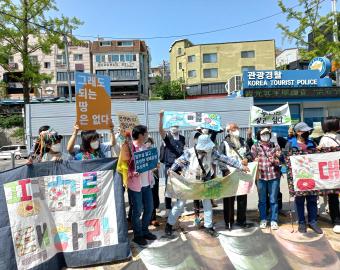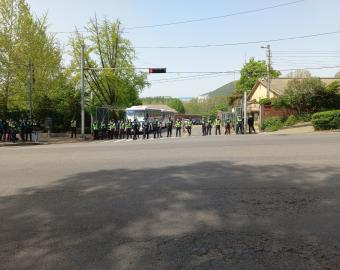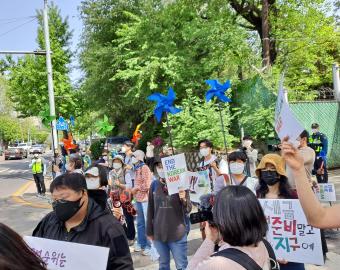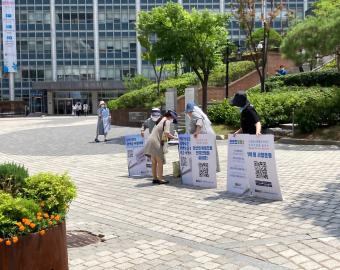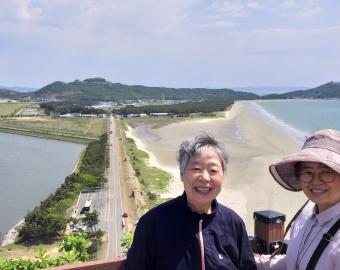Background
History of Korea since 1392
Joseon Dynasty (1392-1910): The Joseon Dynasty, the last dynasty on the Korean Peninsula. The dynasty was weakened by Japanese and Manchurian invasions, as well as political pressure from foreign countries.
Japanese colonial era (1910-1945): The Joseon Dynasty ended in 1910 with the Japanese invasion and the Japanese occupation began. Japanese colonial era was a period in which the Japanese Empire forcibly occupied and colonized the Korean Peninsula.
Establishment of the Korean government (1945-1948): Korea was liberated on August 15, 1945, after World War II, but soon afterwards, a military government was established when U.S. and Soviet troops stationed in the South and North Korean Peninsula, during which confrontation between left and right forces intensified. Eventually, after a general election was held in 1948, the South Korean government was established on August 15 of that year south of the 38th parallel, and on September 9, the Democratic People's Republic of Korea (North Korea) was established, and Korea was divided into two.
Korean War and truce (1950.6.25 – 1953.7.27): In the early morning of June 25, 1950, North Korea crossed the 38th parallel and invaded South Korea by force in an attempt to unify the Korean Peninsula, and the Korean War broke out. To defend Korea from the threat of communism, the UN Forces were formed under General MacArthur, in which 16 countries participated. On the other hand, on July 27, 1953, after a three-year war supported by the military power of China and the Soviet Union, North Korea signed an armistice agreement at Panmunjom in the Demilitarized Zone. About 3 million civilians, 40,000 UN forces, 600,000 Korean and 670,000 Chinese soldiers were killed in the battle, and most of the major cities of both countries were destroyed. As a result, the division of the country became more entrenched.
Beginning of the First Republic (1953)
Military Dictatorship(1961-1987)
The democratic government was established (1987-)
Korea's armistice agreement divides, politically and socially, Korean society into left-right opposition and makes it unstable.
In particular, the Korean government does not have an armistice agreement or wartime control rights, and US troops have been living in Korea for over 100 years in the name of protecting the armistice. US military bases are a kind of sanctuary, and Korean law does not apply, and each base is used free of charge. Even if the US military commits crimes or inflicts damage on Koreans, we have no right to detain the US military.
On December 11, 2020, the Korean government held the 201st US Forces Korea Status Agreement (SOFA) Joint Committee with the United States and agreed to return 12 US bases to Korea. However, the timing may not be known, and treatment of camp contamination should be a priority. Yongsan Camp, the oldest and largest of the US military camps in Korea, is where RSCJ live, and they sometimes participate in peaceful protests with local activists.
The end of the war is the only way we can live as a sovereign nation.
Objective
To raise awareness about the end of the war and the unification of North and South Korea
Activities
As a citizen of a divided country, we have always been interested in our brothers and sisters of North Korea. Whenever there is a difficulty in North Korea (drought, rainy season, Covid-19, etc.), we try to help.
However, since it is a ceasefire state, it is not easy for the Korean government as well as individuals to help North Korea without the permission of the United Nations (e.g., vaccines and masks could not be given to North Korea).
The following are awareness raising activities RSCJ are involved in:
- Women Religious Committee of the National Reconciliation Commission
- Participation in 9-day prayer for national unity and unity hosted by the church
- Peace Campaign to End the Korean War
- Participate in the International Peace Education Forum hosted by various Korean organizations working for peace on the Korean Peninsula (individual or community)
- Support for overseas organizations and North Korean-related organizations working in hospitals in Pyongyang
- Regional Movement and Solidarity for the return of U.S. military bases to citizens
